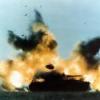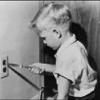I get it, in fact that is perfect setup for most of the military... It's effective and efficient. However aviation has changed, dramatically, over the past few decades. When we "gen" back up and lose a few airmen and planes in the process, we are no longer talking $100,000 and 5 months training; it is beyond exponentially higher than it was. Nor are we talking the same percentage, we lose one p51 and pilot that is nothing compared to losing one f22 and pilot... Not that I'm belittling the value of a life, I certainly am not, but the effect on our militaries ability to wage war is dramatically decreased with respect to the loss of the latter. They are truly irreplaceable.
If we were really serious about reducing mishaps, pilot training would be completely different. From UPT, to initial, to continuation, we would have triple the number of sims, they would all be connected, scenarios would be random, difficult, challenging, you would fly it until you could recognize and react flawlessly. You would train, continually. Exercises would be tough, failures would be common. Flying hours would be abundant.
We keep saying that we can never eliminate the human element, but we really haven't scratched the surface with respect to training aviators as best we can. What if we lost a missile crew, missile, and war head 5-6 times of year, do you think we would nonchalantly sit back and say, "that's the cost of having missiles."
I will just never understand why losses are so acceptable in aviation... I'll go out on a limb and say, with a few exceptions (fatigue, depression, altered mental state, impromptu air show, etc...), anytime we use a human factor code or label it "pilot error" we are masking the problem and therefore the solution. It is so much easier and cheaper to blame an individual rather than fix the system that produced him.













